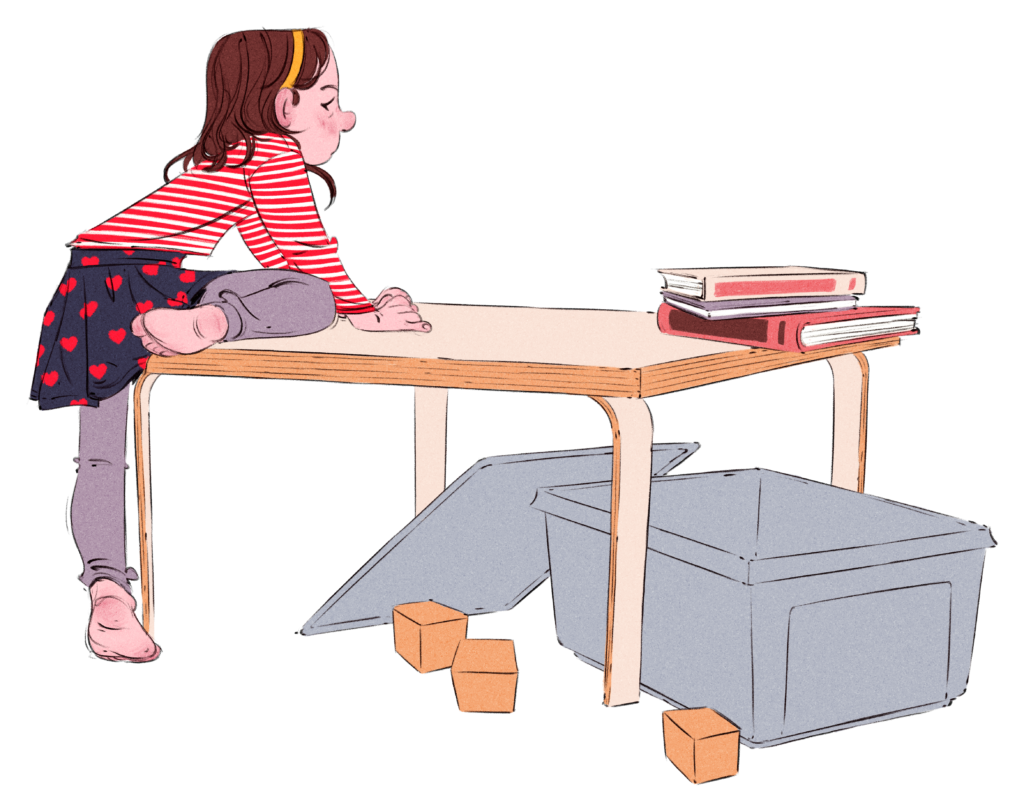Children and young people with intellectual disabilities

Have the same hopes and dreams as others
Children and young people with disabilities, including mental retardation and/or autism, like most of us, have hopes and wishes for a sexual life, romance and love. At the same time, becoming aware and familiar with one’s own body, discovering sexual feelings, finding one’s identity and preferences can be more demanding to learn when you also have a disability.
May need help to establish friendships and romantic relationships
For children and young people with cognitive and social difficulties, it can be a challenge to make a friend or lover in arenas where other young people often find each other, and they may be dependent on a “helper” to establish contact and good interaction with their colleagues. Being dependent on such help from adults can affect self-esteem and the possibility of normal exploration of sexuality.
Appropriate information and exercises about the body, sexuality and boundaries
This group of children and young people needs tailored information and training. The teaching must be adapted to their function, maturity level and learning requirements.
For pupils who receive special education at school, topics related to sexuality must be a compulsory part of the teaching. For students who have difficulties in generalizing knowledge and skills, you must provide adapted training and information outside the classroom, in the environment in which the knowledge and skills are to be put to use.
Repetitive training throughout life
Good information and training are important for promoting healthy development and for cross-border sexual behaviour. Close people and service providers should provide such training, perhaps repeatedly throughout life.
Properly arranged information and training should include:
- Teaching about the body and body functions
- What happens during puberty
- What emotions do we have (including sexual emotions)
- What is a friend, what is a lover
- Consent
- What is legal and what is not legal
- Sex alone, sex with others
- How to behave online
- Where can you seek help?
Difficulty interpreting others
It can be challenging for children with cognitive or social difficulties to see and interpret/understand things from the perspective of others. Talking about how others may experience things can thus be useful. Forms of contact must be practised, and healthy sexual “folk customs” must be taught, for example by using role plays.
Be specific and repeat!
The themes should be communicated in a concrete way, with simple language, and with pictures, signs or symbols to support the words that are said. You often need to repeat the topics several times, approach them in different settings, and check whether it has been understood.
Cooperation with the school health service and habilitation service
Adapted sex education should be provided in collaboration with the school health service, which can assess whether there is a need for further measures to safeguard the sexual health of children with disabilities. The habilitation service for children and young people can provide advice and guidance on disability and sexuality.
Need help to manage own sexuality in a safe way
For some, it is difficult to manage one’s own sexuality in safe and healthy ways, especially if one has never received training and guidance on the subject. Sexual abuse is a difficult topic that needs to be explained carefully. Some may have difficulty setting boundaries for themselves. Others may have difficulty seeing that they themselves are sexually transgressors and perpetrators of abuse.
Greater chance of being exposed to violence and abuse
We know that children with physical or mental disabilities are more exposed to violence or sexual abuse than other children (Hoem Kvam, 2003; Eggen et al, 2009; Eggen et al, 2014), and therefore need extra protection. They may lack the conceptual apparatus to speak up or not fully know what they are exposed to. They may also feel even more dependent on the people who are subjecting them to violence or abuse, making it even more difficult to speak up.
The right to “children’s coordinator”
From 1 August 2022, all families with children with disabilities, and where the child needs long-term and coordinated health and care services, were given the right to be assigned a child coordinator who will coordinate the help between all the agencies. This must contribute actively to safeguarding the municipality’s responsibility to provide the necessary follow-up and facilitation and ensure coordination between the services.
The text has been prepared in collaboration with the Children’s and Youth Rehabilitation Section, Sykehuset Østfold